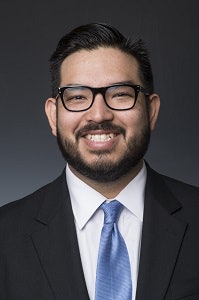In what other situation would a person of color trust a room full of White people to make judgments that will determine that person of color’s future employment? The evaluation process is fundamentally flawed and a testament of how systemic racism functions in our society. We need to do better. There are many reasons why the annual review process reifies systemic racism.
First, the meeting happens behind closed doors. This is the most common way annual reviews are done so that senior colleagues feel safe to provide honest feedback. After all, how will this junior colleague of color grow as a scholar if they do not receive an honest assessment of their scholarship? I find it interesting that the senior colleagues’ safety comes at the direct expense of the person being evaluated. Also, when do faculty of color ever get to feel safe? My mere act of calling out these flaws is putting me in a vulnerable position. It’s plausible to believe that I will not get tenure should a senior colleague in my department read this op-ed and feel a way about it.
 Dr. Marcos J. Del Hierro
Dr. Marcos J. Del Hierro
Second, the knowledge the person of color is going to get about the meeting is a summary provided by the department chair. What training or incentive does that department chair have that reflects an understanding of the issues faculty of color face? For most of us, it’s a losing bet. I can tell you from personal experience that I have gotten sympathy from my chair when the tenure and promotion committee has handed down a “below expectations” decision on my teaching. I found the sympathy to be empty when my colleagues evaluated me based on teaching observations from a notoriously harsh senior colleague coupled with racist class evaluations from predominantly White students. I was being punished for having the audacity of being born an indigenous-Chicanx professor. There are now mountains of research that show both the problems with student evaluations and the struggles of professors of color at majority White universities.
The dean used the tenure and promotion committee’s report along with a look at my course evaluation scores to amplify what she perceived to be room for improvement in teaching. I felt angry, frustrated and depressed. I have spent almost $10,000 of my own money on programs, such as the National Center for Faculty Development and Diversity, to manage all the curveballs academia throws at me simply for not being a straight, White male. I use empirically-proven approaches to conduct efficient and effective research, teaching and service. All that money, time and effort is still no match for a closed-door meeting filled with predominantly White Ph.D.s. African-American scholar Koritha Mitchell put it best in her recent essay on White mediocrity when she says, “In academia, higher standards would require using critical-thinking skills not simply for deciphering Shakespeare, but also the scripts governing workplace culture. After all, it does not take a Ph.D. to understand how or why a person who would never behave despicably with one set of people routinely does so with another.” Clearly, these folks are smart enough to think critically about systemic racism and unconscious bias. I just haven’t seen much evidence of it, and I know I am part of a larger history of people of color having to put their fate in the hands of a room full of White people.
Understandably, folks could label me a cynic. Others would advise me to work harder at developing relationships with senior faculty who could be my voices in the room. To the latter, I would say that I’ve been doing that work. I have seen how worse it can be in those colleagues who haven’t done as much or spent as much money on training as I have. To the former, I will simply reiterate: In what other situation would a person of color trust a room full of White people to make judgments that will determine that person of color’s future employment? Do I need to remind y’all of what group voted in the current president of the United States? The evaluation process is fundamentally flawed and a testament of how systemic racism functions in our society. We need to do better.
Dr. Marcos J. Del Hierro is an assistant professor of English at the University of New Hampshire.



















